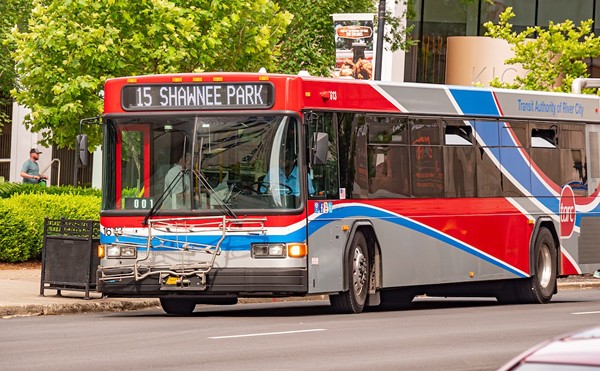A year ago in Alaska, the unthinkable happened: unpopular first-term Gov. Frank Murkowski (R) finished third in a three-way Republican primary, ending his re-election hopes. Throughout the campaign, the main argument of Murkowski’s opponents was that he could not win a fall race against the Democratic nominee. (In fact, the Republican nominee, Sarah Palin, won the fall election.)
Here in Kentucky, the same arguments are being used against Gov. Fletcher by his primary Republican opponents, former U.S. Rep. Anne Northup and Paducah businessman Billy Harper.
Earlier this month, the Northup campaign released the findings of an internal poll that shows Fletcher and Northup tied with 39 percent of the primary vote. Harper is at 10 percent.
The results appeared devastating for Fletcher.
Not only was Northup, who had been in the race for all of a week when the poll was taken, one-third less-known by Republicans than Fletcher, but among respondents who were familiar with all three candidates, Northup led Fletcher by nine points.
And to emphasize the point that Fletcher could not defeat a Democratic nominee, the poll also showed that Northup strongly outperformed Fletcher by as many as 15 points against potential Democratic challengers in the fall.
For those closely tracking Fletcher’s political death spiral for the past few years, this was hardly a shock. Fletcher, Kentucky’s first Republican governor in 32 years, long ago lost the confidence of the state’s Republican congressional delegation following his inept handing of the Merit hiring investigation of his administration. Last year, Lt. Gov. Steve Pence (R) refused to run for re-election with him, and a large chunk of the GOP hierarchy has been hoping for a viable alternative ever since, believing he could not defeat even a second-tier Democratic challenger.
But it wasn’t until Northup lost her congressional seat to John Yarmuth (D) that Kentucky Republicans had a top-shelf challenger who might oust an incumbent governor in a primary.
In January, Northup entered the race, challenging the man whose gubernatorial campaign she co-chaired in 2003. (It’s noteworthy that Harper was Fletcher’s 2003 campaign finance chairman.)
Immediately, Fletcher countered the buzz of Northup’s entry with a bevy of endorsements from state senators and local officials, particularly those in the three large and conservative Northern Kentucky counties (Boone, Campbell, Kenton). Within days, Northup upped the ante by gaining the endorsement of U.S. Sen. Jim Bunning (R), by far the biggest fish from that region.
Meanwhile, the rest of Kentucky’s congressional delegation, including U.S. Sen. Mitch McConnell (R), has yet to take sides, though most believe McConnell’s powerful political machine will fully help Northup, even if completely under the radar. And while her former Republican congressional colleagues from Kentucky have not taken sides, the smart money is that most, if not all, will support Northup in some fashion.
While Fletcher begins the race with an advantage when it comes to local officials (whose projects he helped to fund) and with the more hardcore, religious-right base, Northup counters with the support of the politically pragmatic Republican voters, who are more likely to support a candidate with a better chance of winning the general election. When you consider there are 68 percent more registered Democrats than Republicans in Kentucky, any Republican nominee will need substantial Democratic support to get elected. That does not bode well for Fletcher, whose job approval rating among Democrats has hovered in the 20 percent range for the past year.
Nevertheless, the biggest variables in the race potentially remain to be seen. How much support will Harper’s uninspiring (thus far) candidacy attract when Fletcher and Northup begin dropping bombs on each other? Can the beleaguered Fletcher match Northup in fundraising over the long haul. If not, will his wealthy running mate, Robbie Rudolph, open his checkbook? Will the legislature keep the runoff provision in place, mandating that if the primary winner fails to receive at least 40 percent of the vote, the top two finishers meet in another election six weeks later?
The Republican primary should be a wildly entertaining ride for the next three months, and the outcome is far from certain, but the lessons from last year’s race in Alaska should be foremost in Gov. Fletcher’s mind. If not, he’ll spend his final six months in office as a lame duck in its truest sense, while watching the general election from the sidelines.
Mark Nickolas is publisher of Kentucky’s most widely read political blog, BluegrassReport.org. Contact him at [email protected]





